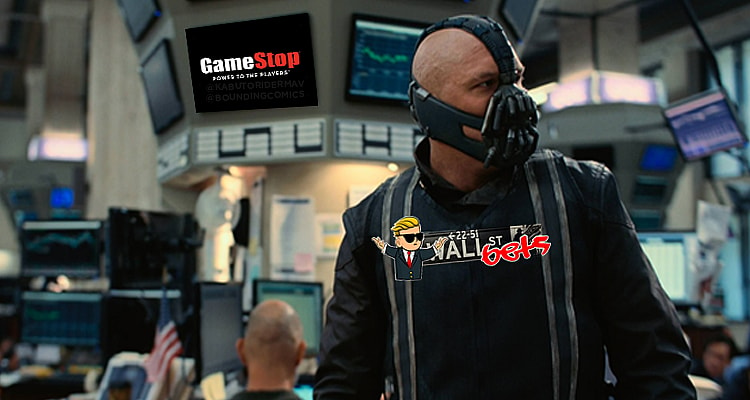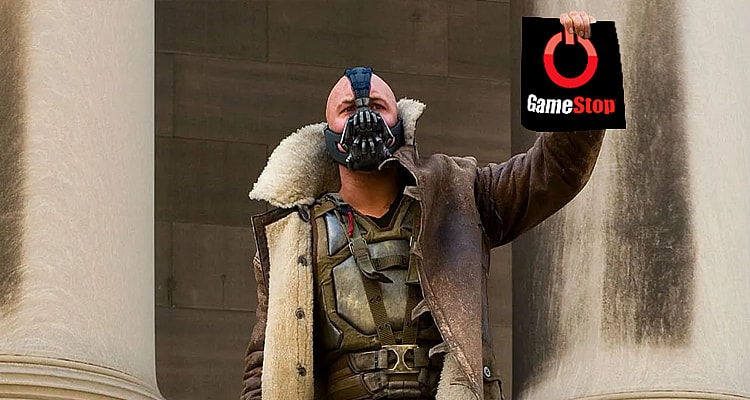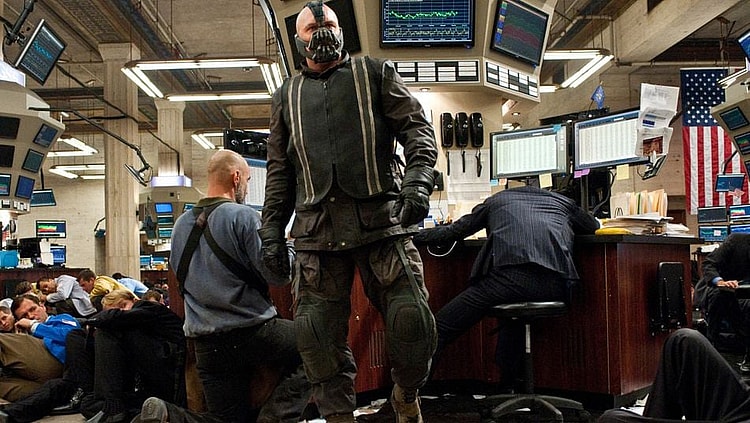GameStop Stock Revolution Strikes Fear Into Heart of Wall Street As Tech Giants Censor Retail Investors

Absolutely no one could have predicted that GameStop, whose previous monetary benefit to customers amounted to nothing more than about 5% trade-in value on brand new releases, would become the driving force for an economic revolution.

Related: GameStop Introduces Door Pickup Following Backlash Amid Coronavirus Pandemic
Prior to the events of this past week, GameStop had been in terrible condition, struggling to survive in an everchanging retail environment. After posting nearly five-straight years of losses, led primarily by a shift in focus towards digital video game distribution methods, many consumers considered it just a matter of time before the video-game-turned-pop-culture-merchandise-centric retailer shuttered its doors for good.
Yet, with US unemployment numbers at record highs due to the ongoing COVID-19 lockdowns and economic relief for thousands of Americans delayed due to political infighting, GameStop’s sub-$20 USD stock price presented retail investors with an opportunity to level the playing field.

Beginning on January 13th, following the cancellation of a presentation by Citron Research in which the firm was expected to argue in favor of selling company stock, investors turned out en masse to buy up GameStop shares in an effort to drive up their value. GameStop shares ended the day with a value of $31.40, an over-50% increase from the previous day’s close of $19.95.
Driven largely by the Reddit community /r/wallstreetsbets, who, as their name suggests, ‘gamble’ on various instances of stock market activity, GameStop’s meteoric surge in valuation continued throughout the following days.
As of writing, following the close of the after-hours markets on January 28th, the shares in the company currently sit at $311.27 in value.

The choice of GameStop as the target for this run-up was not an arbitrary one. While the idea that ‘gamers’ would ‘rise up’ to lead an economic revolution by boosting a video game retailer to the forefront of the Fortune 500 is certainly an entertaining one, the company was actually chosen in order to strike back at the Wall Street elite.
When trading on a given stock market, aside from the trading of the securities themselves, investors can also purchase what are known as options.
These ‘puts’ and ‘calls,’ as they are more specifically known, are essentially bets placed with borrowed securities by an investor on whether a particular stock’s price will go up or down. Each singular put or call represents price movement on 100 individual shares ‘borrowed’ from the original option writer.

To explain, allow yourself to imagine that Bounding Into Comics is a publicly traded company trading at $10 a share and that two individuals bought a put and call for $5 and $15, respectively.
If the price of BIC fell below $5 and the put caller exercised their option, they would profit, as they would be allowed to ‘sell’ their 100 borrowed shares for a higher price than it was currently trading at, causing the person who sold the original option and held the actual the shares to lose money.
Conversely, the call holder would see green if the price rose above $10, as an execution of their call option would grant them the right to buy 100 shares of BIC for $10, despite its trading at a higher price. As in the previous example, the original option seller would lose money, in this case due to being forced to sell the stock to the option buyer for a lower price than what it was actually worth.

Discovering that the company had an overwhelming amount of puts taken out against it by various Wall Street hedge funds, GameStop was, aside from its potential for profit, chosen as a ‘short squeeze’ target by retail investors in order to strike a financial blow to the financial institutions that many believed had taken advantage of the average American citizen.
And strike a blow it did. As GameStop’s stock price started to rise and the potential put profits of said hedge funds began to plummet, Wall Street executives began to take notice.
Hedge fund Melvin Capital Management LP, who had to close out its GameStop puts, was forced to amass nearly $3 Billion in funding in order to rescue itself from financial straits. Maplelane Capital, “a $3.5 billion stock hedge fund”, saw a similar loss of roughly 33%.

Omega Advisors hedge fund manager Leon Cooperman took to CNBC to exclaim that “the reason the market is doing what it’s doing is, people are sitting at home, getting their checks from the government, okay, and this ‘fair share’ is a bulls—t concept.”
“It’s just a way of attacking wealthy people, and you know, I think it’s inappropriate,” he further complained. “We all gotta work together and pull together.”
On a side note, Cooperman and Omega Advisors were charged by the U.S. Securities and Exchange Commission with insider trading in 2017. The case was eventually settled outside of court, with Cooperman being forced to pay a penalty of “$4.9 million in fines and forfeiture” and “retain an outside consultant to monitor trading activity until 2022.”
Awwww poor billionaires. $AMC $GME $NOKE https://t.co/875iFbJcH3
— Barstool Sports (@barstoolsports) January 28, 2021
However, as retail investors continued to profit from their surprise campaign, numerous tech platforms sought to actively stifle their efforts to converse and invest.
Discord was the first to take action against those engaged in the GameStop runup, shutting down the official WallStreetBets Discord server on January 27th.
“Today, we decided to remove the server and its owner from Discord for continuing to allow hateful and discriminatory content after repeated warnings,” read a statement provided by Discord. “To be clear, we did not ban this server due to financial fraud related to GameStop or other stocks. Discord welcomes a broad variety of personal finance discussions, from investment clubs and day traders to college students and professional financial advisors. We are monitoring this situation and in the event there are allegations of illegal activities, we will cooperate with authorities as appropriate.”

Related: Sony Sells Less Than One Million PlayStation Units In Japan In Worst Sales Year Since 1994
Several trading platforms, including Robinhood and Webull, followed suit by outright restricting the trade of certain stocks, including those mentioned above, under the auspices of protecting their customers from ‘volatile market conditions.’
Robinhood, arguably the most popular amateur investing app and whose company philosophy claims to preach the virtues of “democratizing finance for all,” informed their customers on Thursday morning that “amid this week’s extraordinary circumstances in the market, we made a tough decision today to temporarily limit buying for certain securities.”
“As a brokerage firm, we have many financial requirements, including SEC net capital obligations and clearinghouse deposits,” Robinhood wrote. “Some of these requirements fluctuate based on volatility in the markets and can be substantial in the current environment. These requirements exist to protect investors and the markets and we take our responsibilities to comply with them seriously, including through the measures we have taken today.”
As a result of their decision, the company is now facing a class-action lawsuit in the state of New York, whose initial filing alleges that Robinhood “purposefully, willfully, and knowingly removing the stock ‘GME’ from its trading platform in the midst of an unprecedented stock rise, thereby deprived [sic] retail investors of the ability to invest in the open-market and manipulating the open-market.”

As of writing, Discord has since restored the original WallStreetBets server. Robinhood has also announced that they will be lifting the trading ban on restricted stocks, albeit in a limited capacity, starting on January 29th.
What do you make of the GameStop stock surge? Let us know your thoughts on social media or in the comments down below!
[Disclaimer: The author of this article is a long-time member of the /r/WallStreetBets subreddit. Additionally, at the time of this article’s publication, he currently holds shares of AMC stock.]
